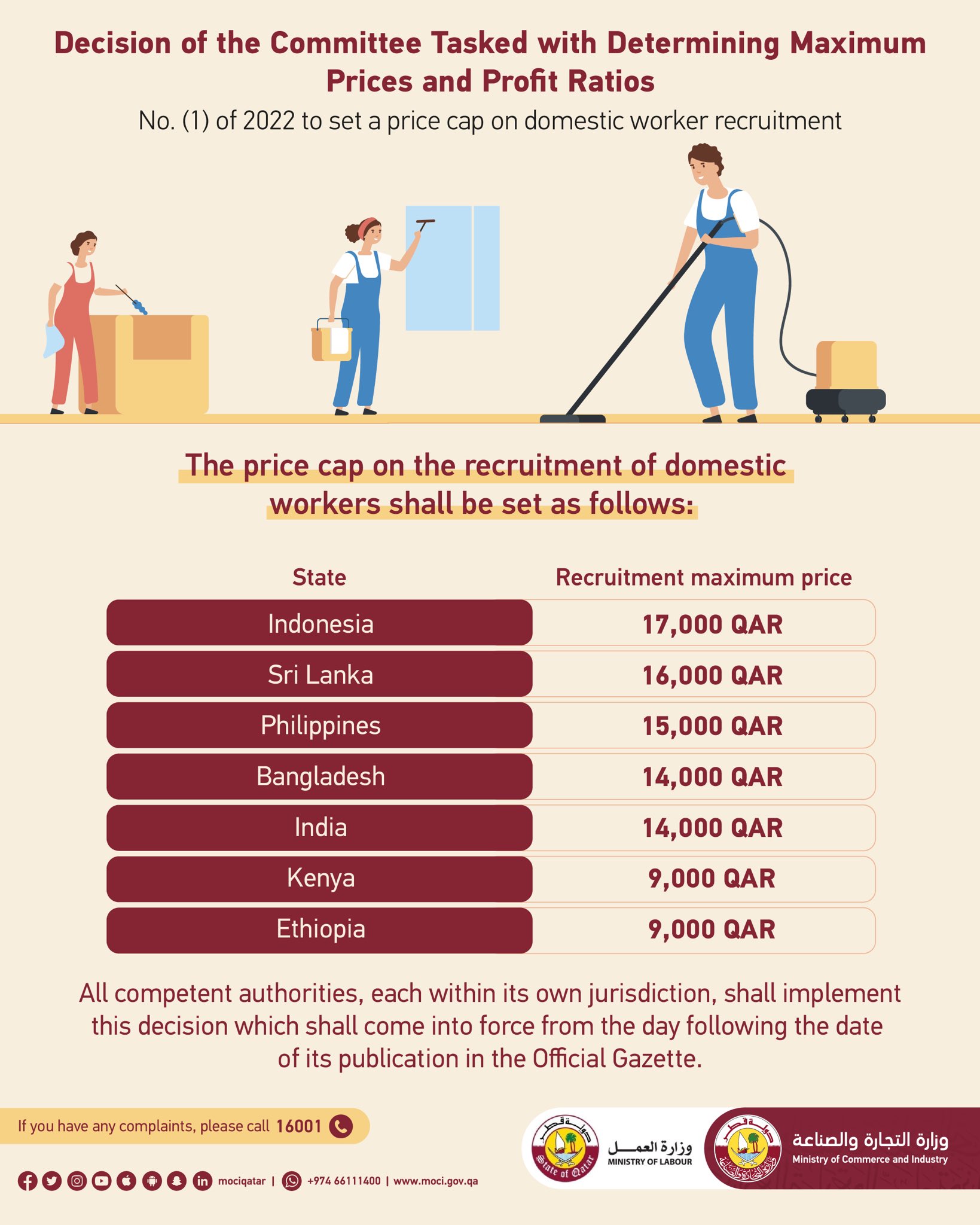In its latest slate of reforms to the domestic worker recruitment industry, Qatar has set a price cap on recruitment fees based on the nationality of the workers. The maximum ‘price’ ranges from a high of QR17,000 (US$4700) for Indonesian workers to a low of QR9,000 (US$2500) for Kenyan and Ethiopian workers.
While a cap on recruitment costs is not unwelcome, the discriminatory rates feed into the stereotypical treatment of workers, with fees equated to the value of the individual. Recruitment costs do vary from country to country, but our research indicates that they do not span such a broad range. If recruitment costs do differ so substantially, then it is necessary to break the fees down into a categorised expense list. Usually, recruitment costs comprise expenses at origin country for work permit, insurance, pre-departure training (if any), and a one-way ticket to the destination country. Disaggregating these costs would help ensure that recruitment fee differentials are due to material variances in local markets, rather than racial bias. It would also help to correct employers’ misinterpretation of recruitment fees as a purchase amount, rather than the service fee that it is.
A cap on recruitment fees is important to avoid indiscriminate hikes during peak periods, particularly before Ramadan, and also when demands for certain nationalities rise. Moreover, employers MR has spoken to over several years of advocacy cite high costs of recruitment as a reason they exercise control over workers. As a result, women domestic workers face several barriers from enjoying their off days to changing jobs.
Earlier this year, Qatar extended the probation period for domestic workers to nine months, in an effort to protect the rights of the employers. Advocates of domestic workers rights fear that these recent decisions will negate the progress made in improving working conditions which include the domestic workers' law, standard contract, and minimum wage.





